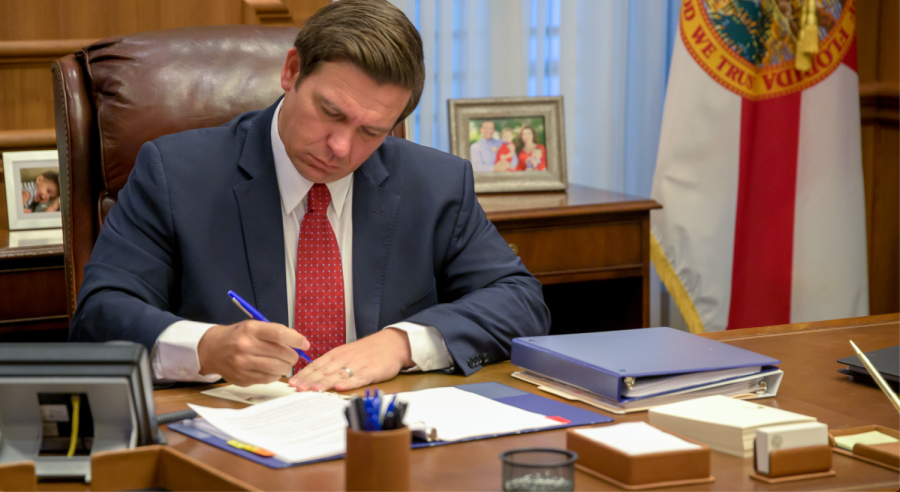Debate over sex education in schools take center stage in Florida
Many students across the globe dread that notorious talk discussed in, what is most often, a middle school health class. Frequently, kids of middle school level education do not want to talk about reproductive health and sexual orientation in a formal way among themselves, let alone teachers. Although it is frowned upon by students, it doesn’t deny the impact and importance of having that particular talk.
Having “the talk” has been helpful and informative for millions of students across the country. It leaves students with at least a small grasp of the facts, and gives a better understanding of themselves, how their body works and what is safe or what is not. It teaches teens to make safer choices and results in less unplanned pregnancies and sexually transmitted infections.
“Students feel more informed, make safer choices, and have healthier outcomes. This results in fewer unplanned pregnancies and more protection against sexually transmitted diseases and infections,” Planned Parenthood said.
Most teenagers received formal sex education before they were 18. That is 96% of all teenagers who have had sex education talks in school according to the Centers for Disease Control and Prevention (CDC). That is four percent away from nearly every teenager learning about reproductive health and sexual orientation in a formal setting, where all of the questions can be asked up front, or in private, and be returned with an informative answer or solution. What would happen if students did not have the opportunity to learn and gain an understanding of the potentially dangerous side effects of being sexually naive?
In March 2022, Florida Governor Ron DeSantis signed a bill that forbids instruction on sexual orientation and gender identity in kindergarten through third grade, a policy that has since drawn intense national scrutiny from critics who have said it aimed to shun LGBTQ+ identities from classroom content and discussion. Many have dubbed the bill the “Don’t say gay” law to push back from the government and showcase that the bill is excessive. Since the law is being discussed again in Congress, it is bringing back some attention to this bill and the effects it can have on sex education and students in Florida.
Recently, the Florida House voted to extend a prohibition on teaching about sexual orientation and gender identity all the way through high school, reviving this debate from last year when the bill was initially signed by DeSantis, who argued at the time that young children should not be exposed to concepts such as gender identity.
If this new addition to the bill is passed, this means any employee or student may not refer to another person using their “preferred personal title or pronouns” if it does not correspond to that person’s assigned sex at birth.
“There is no reason for instruction on sexual orientation or gender identity to be part of K-12 public education.” DeSantis spokesperson, Bryan Griffin, tweeted recently.
The side of the debate that is in favor of restricting students from discussing sexual orientation and identification is heavily supported by many Florida residents, but many Floridians are opposed and will stick together through this new fight brought on by legislation. Those on the opposing side of this bill being passed by congress argue that the bill is discriminatory and will most certainly fight neck and neck to be thought of as equals in public settings. People will not simply stand by while the government attempts to erase the identities of those who are different.
“That’s their point. It’s to push us out of the school system (and) to push us out of any safe place that we’re supposed to have,” Rain Weinstein said.



